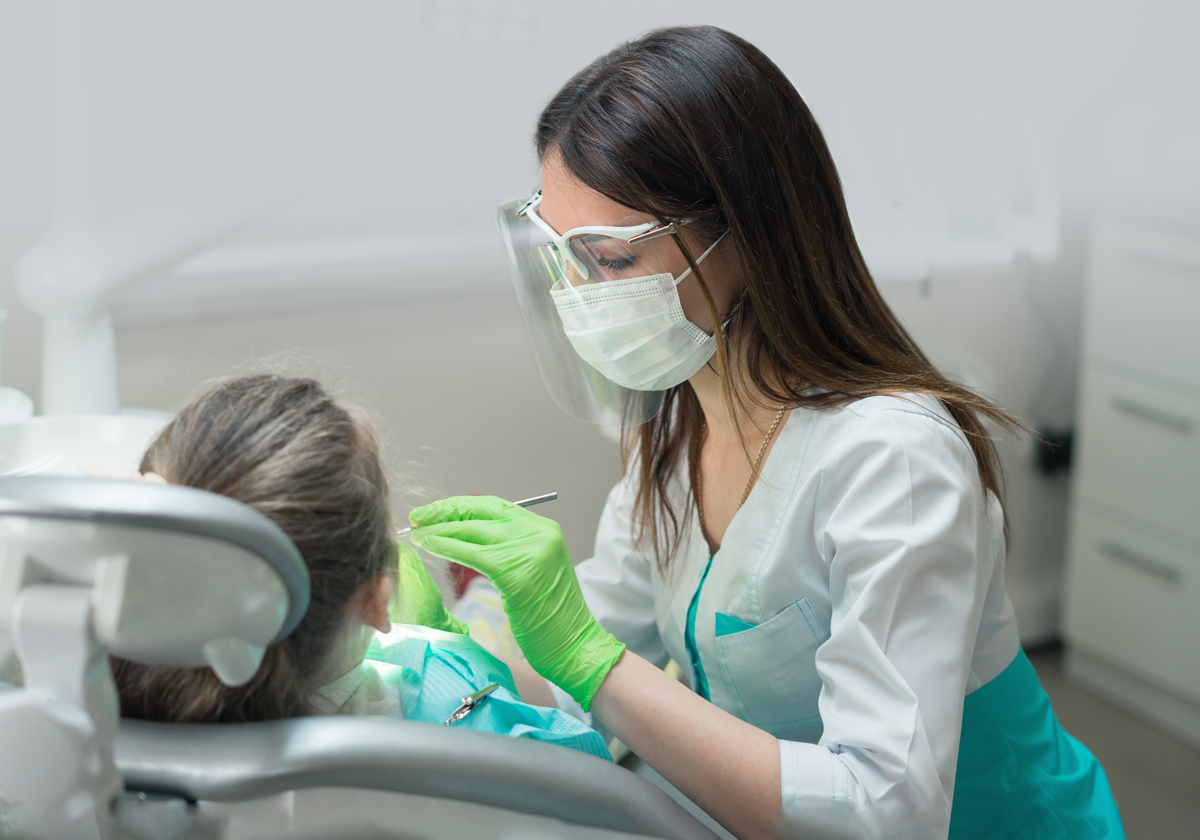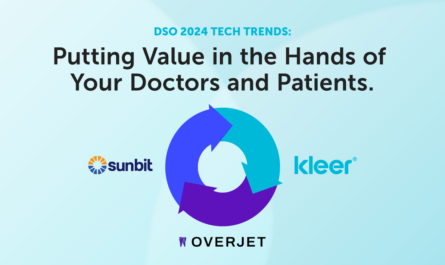Hygienists today play a lead role in patient care.
Advances in technology have opened a host of opportunities for dental hygienists in recent years. Particularly for those working in a large group practice or dental service organization, where the cost of new technology is less prohibitive than it is for solo offices, hygienists can – and often are expected to – play an increasingly greater role in patient care.
Indeed, many hygienists today are a significant part of the dental team, according to Jennifer Rush, RDH, BSDH, director of dental hygiene, DecisionOne Dental Partners. “At DecisionOne Dental Partners we look at the hygienist not just as a team member, but as a clinician,” she says. “We value the hygienist like we value a doctor. In addition to providing outstanding customer service, our hygienists provide care to their patients; they are taught to look at their patients’ systemic health, not just their oral health.
“Our patients see more of their hygienists than any other healthcare provider,” she continues. As such, they make it a point to educate their patients and form long lasting relationships with them. “For example, we all take blood pressure readings on all our patients, at every visit,” she says. As a hygienist, I am more likely to catch high blood pressure than their regular physician is. It’s a great feeling to know I am directly involved in improving my patients’ overall life.”
The role of technology
Rush credits advances in technology for helping hygienists expand their role in recent years. For that reason, hygienists must stay current on the latest and greatest products in order to provide the best possible care, she adds. “Hygienists must constantly grow in their profession,” she points out. “As a primary healthcare provider, hygienists must keep current on new technology, together with doctors,” she explains. As she discovered after joining DecisionOne Dental Partners, the closer in touch she is with new services and technology, the better able she is to develop her skills and care for her patients.
Hygienists who keep current tend to be more involved in treatment plans and post-operative procedures, leading to better communication and improved patient compliance, notes Rush. “In addition, DecisionOne Dental Partners has gone almost completely paperless, enabling the whole dental team to access patient records more quickly and provide more thorough, efficient care,” she says. And, thanks to such products as VELscope and OrallD, the DecisionOne team – including their hygienists – can spot health risks that previously went unseen. “Technologies such as these help us see things we were unable to see with our naked eyes,” she says. “This is a great thing for patients, as we are catching abnormalities at earlier stages.”
The challenge for hygienists is to take it upon themselves to continually learn about new technological advances and scientific research that can lead to better patient care. Now more than ever, hygienists need to take advantage of continuing education and resources offered by such groups as the American Dental Hygienists’ Association, Rush points out, noting she appreciates that DecisionOne Dental Partners encourages all of its team members to do so.
Long gone are the days when hygiene care was limited to flossing and polishing patients’ teeth, notes Rush. “Today, patients are more educated about their oral health and expect more from their hygienists,” she says. “Hygienists are responsible for their patients’ overall health.”
In sync
Growing concern around infection control and the importance of following safety protocols in dental offices may lead some to question how realistic it is for hygienists in a DSO setting to meet a consistent standard of care. However, an educated, conscientious dental team can do so, according to Rush. “When you are following the standard of care and proper protocols set up by the American Dental Hygienists’ Association, the American Academy of Periodontology, state dental boards and so forth, it doesn’t matter how large the practice is or where the offices are located; you know the patients are getting the best possible care,” she says. “Not only am I a chairside hygienist, but also the hygiene director for DecisionOne Dental Partners. One of my main roles is to coach and mentor over 80 hygienists in our group and see that the highest standard of care is maintained at all of our dental offices to ensure the safety of our patients.
“DecisionOne Dental Partners was founded – and is run – by two working dentists,” says Rush. “They know how important it is for all of our offices to be up to date on training and education. All team members, including administrative personnel, receive in-person OSHA/HIPAA training, as well as online webinar training. We also have infection prevention quality control measurements through the use of team member evaluations.” Hygienists are encouraged to be role models in infection control and adhering to safety protocols, she adds.
As patients become more aware of oral-systemic connections, they likely will seek out more frequent dental care, according to Rush. In addition, the growth of DSOs is making dental care more affordable and accessible, she points out. Changes such as these are making hygienists more valuable to the dental team than ever before, she notes. “Now more than ever, hygienists need to be on top of new products, technology and research in order to help educate patients and improve their lives,” she says. “In group practices, there is a certain standard of care that’s expected, measured and encouraged; if hygienists are not growing in that regard, they can fall behind the times.
“At DecisionOne Dental Partners, we believe in changing dentistry to improve lives,” she continues. “Hygienists at DecisionOne Dental Partners are the first line of clinicians who make sure this happens. I am proud of my profession and equally proud of what my group is doing for our patients.”





